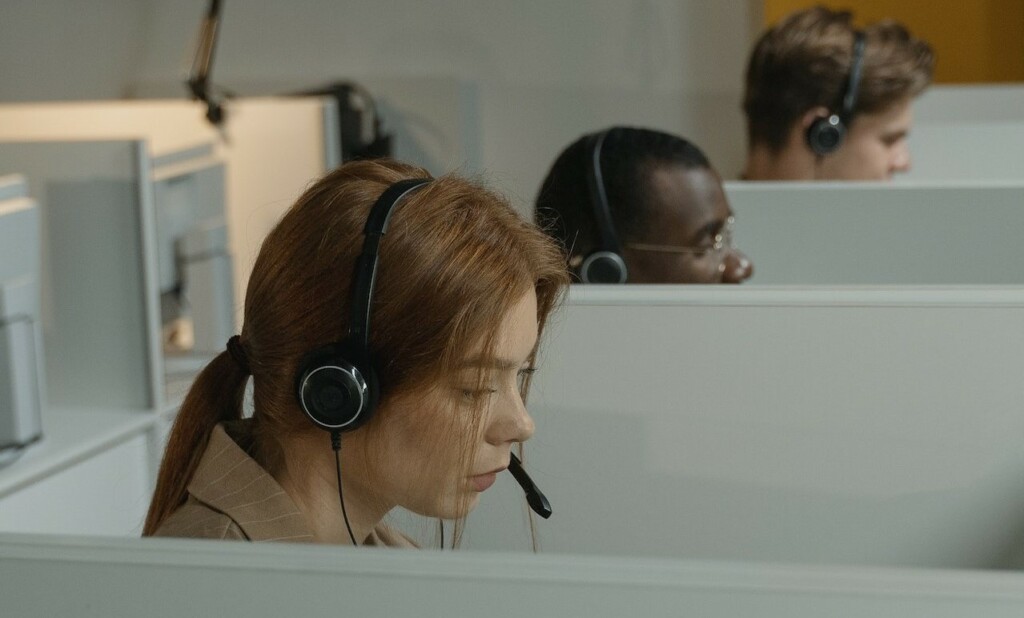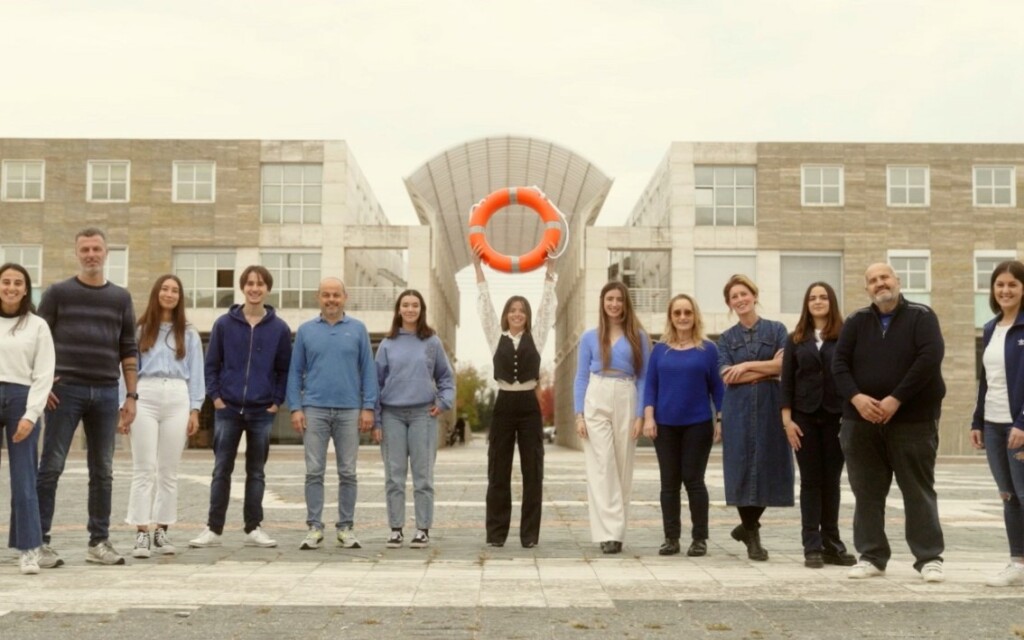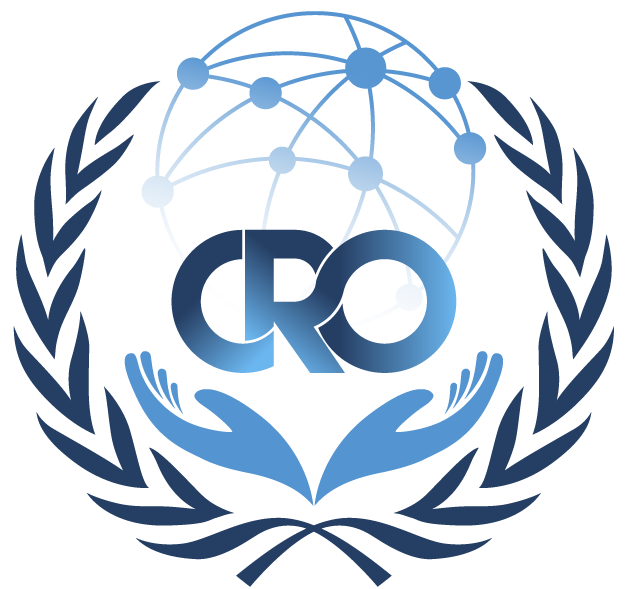Stay informed and protect your online privacy and safety with our comprehensive guide to understanding your Internet rights.
Index
- What are Internet rights?
- Historical evolution of Internet rights
- The most common types of Internet rights
- How do Internet rights impact our lives?
- How can you protect your online privacy?
- The role of governments, companies, and citizens in defending Internet rights
- Conclusions

Are you a victim of online crime or abuse?
Contact the CRO Helpline
What are Internet rights?
Internet rights are the rights that individuals have using the Internet.
They are an extension of human rights in the online world.
These rights include freedom of expression, privacy, access to information, and non-discrimination.
Internet users should be able to express themselves without fear of censorship or persecution.
They should also be able to access the Internet without being discriminated against based on their race, gender, religion, or any other factor.
Additionally, they should have the right to privacy and access to information that is accurate and up-to-date.
In reality, the situation is far from uniform in different countries of the world.
The Freedom House analysis reports on the level of online freedom in 70 countries around the world, taking into account not only the accessibility of computer resources, but also the protection of online rights.

On a scale of 0 (not free) to 100 (free), the least free country is China, with a score of 10, while the freest is Iceland, with a score of 95.
The results are based on an analysis conducted through a 21-question questionnaire that touches on three themes:
- Obstacles to access;
- Limits on content;
- Violation of user rights.
As explained on the website:
“Under each question, a higher number of points is allotted for a freer situation, while a lower number of points is allotted for a less free environment.”
From this we can understand how internet rights are essential for a free and open Internet that can be used by anyone regardless of their background or beliefs.
Historical evolution of Internet rights
Internet rights’ historical evolution has been a long and complex process, with many countries taking different approaches to ensure that citizens are protected while using the web.
The right to privacy has been recognized as an important facet of freedom of expression, and the right to be forgotten has long been acknowledged as a fundamental freedom.
In the European Union, personal data protection is protected under article 8 of the Charter of Fundamental Rights:
“Everyone has the right to the protection of personal data concerning him or her.
Such data must be processed fairly for specified purposes and on the basis of the consent of the person concerned or some other legitimate basis laid down by law. Everyone has the right of access to data which has been collected concerning him or her, and the right to have it rectified. Compliance with these rules shall be subject to control by an independent authority.”
In 2021, EU member states sign a declaration on the rights and principles that will guide digital transformation in the EU.
As stated in the introduction to the document:
“We believe in a human-centred digital transition. […] To capture this better, we will formulate a set of digital principles. Such as access for all to the Internet; a secure online space; the right to learn digital skills; algorithms that respect people; the protection of children online.
These important principles will complement the legal rights that already protect Europeans online like the protection of personal data or the freedom of expression.”
This was preceded by the Berlin Declaration on the Digital Society and the Lisbon Declaration on Digital Democracy.
These laid the foundation for a pan-European dialogue on digital rights.
European Declaration on Digital Rights and Principles for the Digital Decade
In 2022, the texts mentioned so far will lead to the creation of an official document at the European level that will unify all fundamental digital rights and the principles that govern them.
This is the “European Declaration on Digital Rights and Principles for the Digital Decade”.
As stated in the preamble:
“We aim to promote a European way for the digital transformation, putting people at the centre, built on European values and EU fundamental rights, reaffirming universal human rights, and benefiting all individuals, businesses, and society as a whole.”
The key points of the statement are:
- Putting people at the center of digital transformation.
This means creating a transformation that benefits everyone, respects the rights of individuals online and offline, and encourages greater accountability from all stakeholders.
- Solidarity and inclusion.
Technology is there to unite, not divide: we need to create an online network that is usable by all, in terms of accessibility and connectivity; but also to provide the appropriate tools and knowledge to create a certain awareness of cybersecurity.
- Freedom of choice.
Everyone must be able to benefit from new technologies, while at the same time being free to choose which tools to use.
- Participation in the digital public sphere.
Everyone must be guaranteed free participation in the digital space, without discrimination.
Digital platforms must enable and encourage democratic debate and protect and respect diversity.
- Security and empowerment.
Technologies must be designed to be secure and guarantee privacy: individuals must have control over their personal data.
This point also explicitly refers to the empowerment of children and young people by providing them with all the necessary tools to use the Internet safely and to protect them from cyber threats.
- Sustainability.
Digital development must go hand in hand with environmental development.

Has someone posted private material online without your permission?
Request immediate assistance
Internet rights worldwide
Outside the European Union, the most relevant and globally significant document is the UN Roadmap for Digital Cooperation.
One of the premises of the document is based on these data:
“93% of the world’s population live within physical reach of mobile broadband or Internet services. However, only 53.6% of the world’s population now use the Internet, leaving an estimated 3.6 billion without access. The least developed countries are the least connected, at only 19% of their populations.”

The common goal of all UN countries is therefore to extend and standardize the usability of the Internet and, consequently, to extend the respect and protection of digital rights to all.
In addition, there is another document that is widely agreed upon, the “Charter of Human Rights and Principles for the Internet”, to which the Internet Governance Forum (IGF) subscribes.
Another example of supranational intervention is the African Declaration of Internet Rights and Freedoms.
This model takes into account 13 points ranging from Internet accessibility to freedom of expression to gender equality.
The most common types of Internet rights
Internet rights are crucial for protecting citizens’ freedom of expression and privacy, as well as ensuring that they can access the Internet without interference from governments or other entities.
The most common types of Internet rights include the right to privacy, freedom of expression, access to information, and freedom from censorship.
In The charter of human rights and principles for the Internet, are listed 10 Internet rights and principles that can be used as a guideline:
- Universatility: all humans are born free and equal dignity and rights, and it must be respected also in the online environment;
- Accessibility: everybody has right to access and use open Internet;
- Neutrality: content has to be free from prioritization, discrimination, censorship, filtering or traffic control;
- Rights: everyone has the duty to respect the rights of all others in the online environment;
- Expression: people have the right to express themself anonymously and without arbitrary interference or surveillance;
- Life, liberty and security: those rights are fundamental;
- Privacy: everyone must be able to control how personal data is collected and used;
- Diversity: Internet must promote cultural and linguistic diversity and encourage diversity of expression;
- Standards and regulation: the Internet’s architecture have to facilitate interoperability and inclusion;
- Governance: rights must be the foundation of the Internet and must be protected by a solid legislature.
Additionally, Internet users have the right to be free from discrimination based on their race, gender identity or sexual orientation when using the Internet.
Online gender-based violence must be eradicated as well as any other kind of hate speech.
Indeed, the right to freedom of expression includes the right to create and distribute ideas without interference, as well as the right to access information and express oneself.
How do Internet rights impact our lives?
Internet rights are the rights of individuals to access and use the Internet without fear of censorship or discrimination.
These rights are essential for people to be able to access information, express themselves, and engage in meaningful conversations online.
They also ensure that everyone has a fair chance to participate in the digital economy.
CRO Cyber Rights Organization’s mission goes in this direction, providing every human being with their fundamental rights for a safe and secure use of the web.
Internet rights have a direct impact on our lives as they protect us from being silenced or censored online, allow us to freely express ourselves, and ensure that we can access the information we need.
Unfortunately, these rights are often violated by governments and corporations who want to control what we can see and say online.
It is important for us to be aware of our Internet rights so that we can fight for them when necessary.
The Internet is a powerful tool that can be used for both good and evil.
In order to achieve this goal, they often violate Internet rights through censorship, surveillance, or other types of interference that may result in social justice activists being silenced or harmed in some way.
How social media platforms impact our Internet rights?
The Internet is an integral part of our lives, and it has become increasingly difficult to navigate the online world without the help of social media platforms.
While these platforms have enabled us to stay connected with our friends and family, they have also had a significant impact on our Internet rights.
Social media platforms are now playing a major role in determining what kind of content we can access and how we can express ourselves online.
This has led to a growing concern about how these platforms are impacting our right to freedom of expression, privacy, data protection, and other fundamental human rights.
The Internet has provided us with ways to connect with people on a global level, allowing us to build our own communities based on what we like.
However, this is also where the main concerns arise, as social media platforms have become an important tool that shapes how content is shared online.
This is seen in how they moderate content posted on their websites and enforce policies that can impact people’s rights, such as freedom of expression.
As these platforms have evolved over time, many of them have taken efforts to ensure that they are providing content that is free from hate speech.
Each platform has a moderation policy that explains the community standards, with all the allowed and forbidden actions.
It gives the users the chance to ask for content removal if it ruins its reputation or offends its identity.
Among the most used social platforms, Instagram is the one that receives the most requests to remove content.
As data from Reboot Online shows, the number of requests increased by 427% from 2019 to 2020.

It went from over 20 million requests in 2019 to over 106 million in 2020.
How can you protect your online privacy?
As technology advances, so does the need to protect your online privacy.
With the increasing amount of data being collected and stored online, it is more important than ever for individuals to be aware of their Internet rights and how to protect their personal information.
There are a few easy way to protect your data and so your privacy:
- Accept necessary cookies only: in this way, you block the company to use your data for commercial purposes;
- Browse safely, using VPNs or in incognito mode: doing that you will not leave any digital footprints;
- Don’t put your personal data unless they are strictly necessary and, even so, protect them;
- Use two-factor authentication every time it is possible.
By understanding these methods, you can ensure that your personal data remains safe and secure in an increasingly digital world.
Your personal data belongs to you and you have a right to protect it.
As a consumer, if you are uncomfortable with an online service collecting your personal information without your permission and sharing or selling it, then you can refuse their services by not using them while they collect your data.
Unfortunately, most people do not realize their rights in regards to their personal data.
To protect yourself from potential data breaches, it is important to understand your Internet rights and take steps to secure your online data.
Tips on how to exercise your Internet rights and stay safe online
In today’s digital world, it is important to understand your Internet rights and learn how to protect yourself online.
Those are a few tips you can follow to exercise your rights:
- First of all, you have to deeply understand how to exercise your right to privacy.
One way to protect your right to privacy is by understanding how your Internet service provider (ISP) saves information about visiting websites, search engine queries, e-mails, and other Internet activity.
- Protect your privacy on social networking sites.
Though your posts are public, you can protect your information from being found by friends, family, and strangers.
- Sign out of social media sites when you’re done using them;
- Remove any identifying information or pictures from your profile picture and bio.
Avoid putting personal or contact information on your profile picture or on any post you publish, especially if you have a public profile.
- Don’t give your personal details to strangers who message you on social media.
You don’t have to forget that online privacy leads to offline privacy.
Protecting your personal information online, you also reduce all those harassments like the so-called sextortion.

Need help removing harmful or illegal content from the Internet?
Request immediate assistance
The role of governments, companies, and citizens in defending Internet rights
In the digital age, it is essential to protect the rights of Internet users.
Governments, companies, and citizens all have a role to play in defending Internet rights.
First of all, governments must create laws and regulations that protect citizens from online abuse and exploitation.
Companies should develop policies that ensure their customers’ data is secure and private.
And citizens must be aware of their rights and take action when they feel those rights are being violated.
By working together, governments, companies, and citizens can ensure that everyone can access the Internet safely and securely.
For example, governments could require companies to offer data breach notifications when personal information is lost, stolen, or exposed.
In addition, governments could introduce legislation mandating that companies not pay for people’s personal information and requiring them to inform consumers how their data will be used.
Conclusions
The Internet is part of our everyday lives.
It means that all the rights we have offline must be protected also online.
Those are the most important informations you can find in our guide on Internet rights:
- Internet rights are the rights that individuals have using the Internet: they are an extension of human rights in the online world;
- The least free country is China (10 points), while the most free is Iceland (95 points);
- Internet rights’ historical evolution has been a long and complex process, with many countries taking different approaches to ensure that citizens are protected while using the web;
- In the European Union, personal data protection is protected under article 8 of the Charter of Fundamental Rights;
- Internet rights have a direct impact on our lives as they protect us from being silenced or censored online, allow us to freely express ourselves, and ensure that we can access the information we need;
- Instagram is the social platform that receives most content removal requests.
When we talk about Internet rights, the first thing to keep in mind is that your personal data belongs to you and you have a right to protect it.
CRO Cyber Rights Organization has the purpose to protect people and their rights in the online world, eliminating every dangerous online threat.

Want to report a case of digital rights infringement?
Contact the CRO Helpline

